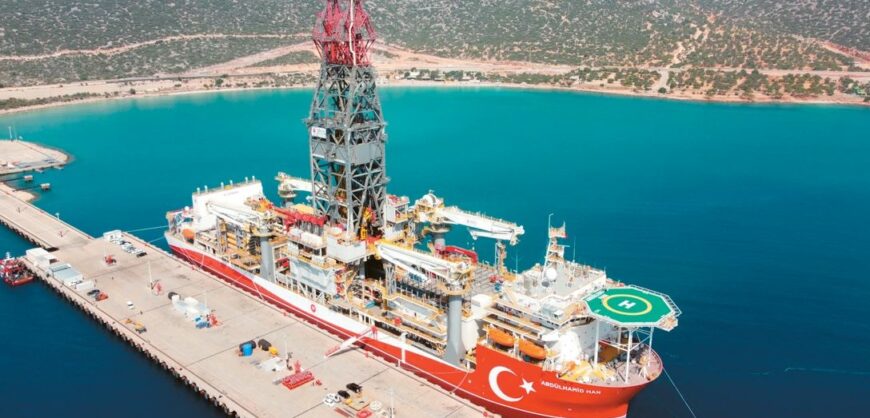A pro-government Turkish think tank has warned that the U.S would come to the aid of Greece in a possible open military conflict in the Aegean Sea. The SETA Security Radar in its report predicts regional unrest if Ankara finds deposits in areas it does not own and heeds of the risk of war, which Washington will rush to avert.
The long report forecasts regional unrest, a Greek reaction, and the intervention of the United States in order to avert a possible crisis that could even lead to an open Greek-Turkish military conflict, in the possibility that Ankara locates hydrocarbon deposits in areas which, although they do not belong to her, she appears to dispute their ownership.
The report warns the Turkish political leadership to avoid taking unilateral decisions regarding the extraction of hydrocarbons in the Mediterranean, highlighting the risk of a more general conflagration in the region.
As estimated, based on relevant statements of Turkish government officials, but also related publications of the Turkish press, the “Abdul Hamid Khan” will leave the Mersin area (currently, it is mainly equipped with technical personnel carrying out repair work) within the first fortnight of August. The destination of the drilling rig, although it is likely that it will move within the boundaries of the so-called “Blue Homeland”, is still unknown, since, based on relevant statements by Turkish Energy Minister Fatih Domez.
The SETA Security Radar report, numbering approximately 150 pages, is entitled “Turkey’s Geopolitical Landscape in 2022- Strategic Resilience amid Regional Realignment and Global Ambivalence”.
Its main chapters concern the assessments of the developments in the SE Mediterranean, focusing mainly on the sector of hydrocarbon extraction. The Turkish analysts presuppose the exit of the Turkish drilling rig in the SE Mediterranean by quoting the political leadership in Turkey and the range of its options. In this context, an attempt is made to predict the reactions of some key players in the region, like Greece but also the United States, with the relevant simulations the results of which do not appear particularly favourable for Turkish interests. “The US will remain out of the equation until there is a serious development.”
However, if Turkey finds deposits in the Eastern Mediterranean, this will cause regional unrest, especially with Greece’s reaction”, SETA states, considering that, as long as Athens and Ankara do not escalate the crisis between them at the operational level, the United States will avoid taking an open and clear position in favour of one side or the other.
However, according to the Turkish pro-government think tank, Washington’s reaction will be completely different if things between the two countries escalate to such a point that there is the risk of creating a military conflict, with unknown consequences for peace and stability in the region. In such a case, the authors of the report believe that the United States would intervene directly and decisively, supporting the Greek positions in practice. If Turkey’s moves lead to regional unrest, “there is a possibility that the US will undertake policies that run counter to Turkey’s national interests,” SETA stresses.
Greek strengthening it position
Apart, however, from the Turkish claims to hydrocarbon deposits contained in the Greek or Cypriot EEZ and despite the image of regional power that Ankara cultivates for itself, the Turkish think tank admits that the diplomatic maneuvers of the Greek side in recent years have produced results by blocking the expansionist aspirations of the Turkish leadership in the SE Mediterranean. These moves have upgraded Greece as a threat to Turkish interests in the region, the report says. According to the think tank, Greece is considered the sixth biggest threat to Turkey in 2021 and is expected to become the fifth in 2022.
In essence, the SETA report confirms the assessments of the Pentagon sources who believe that, although the Turkish political leadership focuses its rhetoric on the status of the Aegean islands, its real interest has moved to the SE Mediterranean due to the existence of significant deposits natural gas. “If Ankara wants to cause a hot episode with Greece, then it is most likely that it will seek to do so within the area bound by the illegal Turkish-Libyan memorandum and most likely south of Crete”.

































